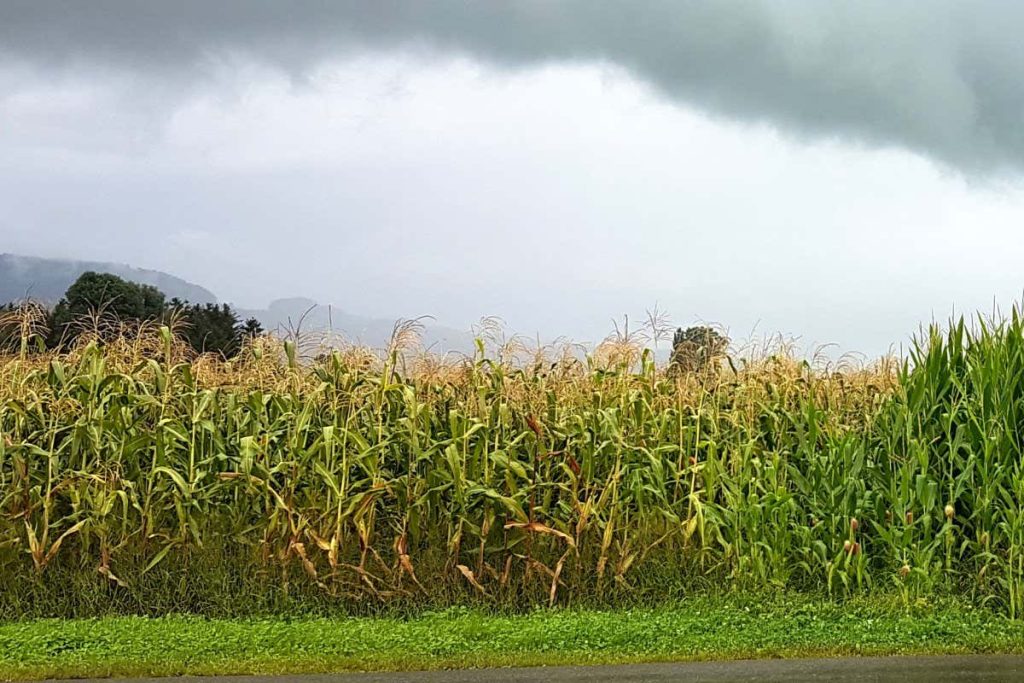A simple breeding experiment can identify genetic variants that make plants grow well without impeding their neighbours, improving overall yields
Life 29 November 2022
A traditional maize variety (left) and a modern one that can be more effectively packed into high-density fields
Samuel Wuest (CC-BY 4.0,)
Identifying genes that make plants “cooperate” with their neighbours rather than compete with them could enable breeders to develop more productive crops.
Natural selection usually favours “selfish” plants that beat their rivals in the competition for light, space and nutrients. But crop breeders can boost overall yield by selecting plants with traits that are helpful to nearby plants, such as shorter stems, less spread out leaves and compact roots.
During the “green revolution” …

